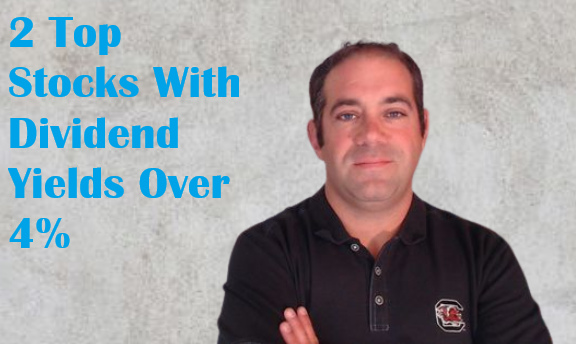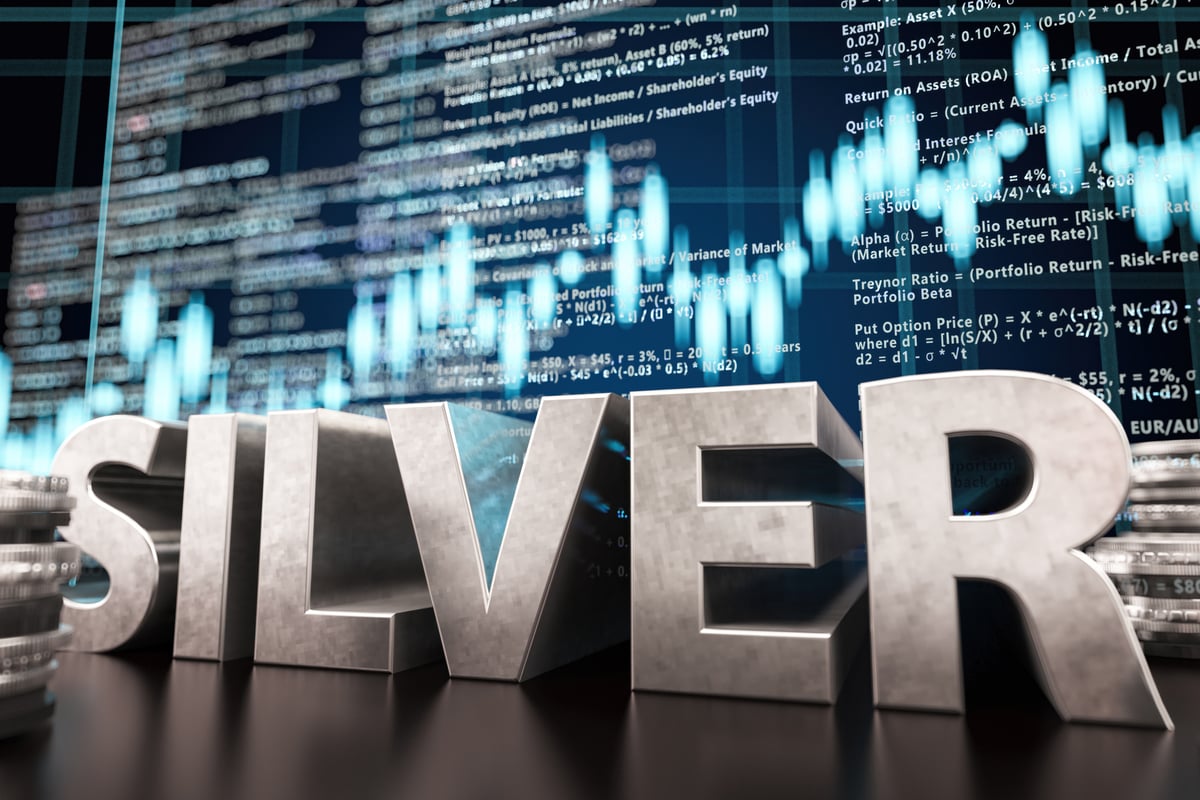Occidental Petroleum (OXY +3.32%) outbid big oil rival Chevron (CVX +2.44%) for control over Anadarko Petroleum (APC +0.00%) thanks to some help from Warren Buffett. That's one of several moving parts in this deal that helped Occidental come out ahead. In this Industry Focus: Energy clip, host Nick Sciple and Fool.com contributor Matt DiLallo discuss:
- Why Chevron walked away.
- Occidental's side deal with Total for Anadarko's African assets.
- Buffett's injection of $10 billion into Occidental to help it beat out Chevron.
To catch full episodes of all The Motley Fool's free podcasts, check out our podcast center. A full transcript follows the video.
This video was recorded on May 9, 2019.
Nick Sciple: Last time we had you on the show, April 18th, Chevron had just made an offer to buy Anadarko. Twelve days later, Warren Buffett and Berkshire Hathaway jumped into the mix. We're going to talk about that today. But then this morning, Chevron announced they're pulling out of the deal. Every time we come on this show, we're getting new news, new stuff to talk about here at this deal. The news of the day, before we dive in deep into the details of this deal, what's your thoughts on Chevron pulling out today, taking that billion-dollar breakup fee and taking the ball and going home?
Matt DiLallo: Yeah, I think that makes total sense for them, even though the deal really looked good from a Chevron perspective. There's so much more strategic benefits for them than I think for Occidental. But $1 billion, I think anyone would take that, especially in the oil industry. Oil prices have been so volatile, this deal could really hamper Occidental long-term. I did like something that Chevron's CEO said. He said winning in any environment doesn't mean winning at any cost. Their ability to look at the cost and say, this isn't worth overpaying for, I think that makes a lot of sense for them.
Sciple: Yeah, and $1 billion doesn't hurt, either. Just to break down how things shook out, Chevron had offered a deal at $62 a share. But then Occidental came over the top and offered $76 a share with $59 of that in cash. Earlier this week, Anadarko's board said that the Occidental bid was bigger. Then Chevron pulled out today. So as we sit today, this is where we're at. What really made this deal possible were a few moves that Occidental was able to make to generate some cash. There are two deals there. We have the Berkshire deal, which we'll talk about. But first, let's talk about Total. They're going to divest $8.8 billion worth of assets in North Africa. Occidental had said they were going to divest $10 billion in assets to be able to make this Anadarko bid work. This gives them $8.8 billion of that. What should we know about this deal? What does it mean for Total to take that position in North Africa and take these assets away from Anadarko?
DiLallo: It makes sense for Occidental to pawn these off on Total. They're not really big in international markets, especially in Africa. So it makes a lot of sense. The question I have is, there was really no bidding on this that we know of. It was like, "Hey, could you take these off our hands?" $8.8 billion is a lot of money for this. It does take off the LNG project that Anadarko was working on in Mozambique. That could be a big deal for Total over the long run. LNG is this huge, fast-growing market. China's consuming a lot of natural gas, so they need LNG. It makes a lot of sense for Total to pick that up. They want to be a bigger player in LNG and rival Royal Dutch Shell. I think it's a good deal on their side. I don't really think Occidental got full value for it. But that's my opinion.
Sciple: Yeah, that seems to be the case. It seemed that Occidental felt a little thirsty on this deal. They're making a lot of moves to generate the cash to be able to make it happen. Going to the Berkshire side of this deal, Berkshire got really an incredible deal from Occidental as well. Buffett committed $10 billion to a preferred stock investment in Occidental Petroleum with an 8% coupon. That means Berkshire is going to get $800 million annually every year from this deal. For an investment-grade company, that's the high end of normal. Really favorable deal for Berkshire as well as, he got a sweetener in the form of warrants to purchase up to 80 million shares at $62.50 a share. When you look at this deal, same question. It obviously it appears very favorable for Berkshire. What does this mean for Occidental? What was the rationale behind this deal?
DiLallo: There are two main concerns from investors on this deal. One of them is, all the shares that they were going to issue to Anadarko. If they issued more than 20%, they would have a shareholder vote. They were concerned that shareholders would vote the deal down. There's been a lot of talk that now shareholders will vote out the board. In order to get around that, they need to offer more cash. That's where the assets on Africa, and then this thing from Buffett come in. Because there were concerns about the balance sheet. Occidental has a great balance sheet, A-rated credit. However, they're taking on a lot of debt in this deal. They're assuming Anadarko's debt, and they're paying all this cash. One of the ways to get around that is to use preferred stock. It's like common shares plus equity. It's got that 50/50 balance, so it doesn't weigh down the balance sheet in the eyes of credit rating agencies. So, it was a way to get around that. But the price they're paying is really incredible. Some analysts thought they could have got 6% if they did this deal through the public markets. And it's perpetual. Warren Buffett could conceivably get this, $800 million a year forever. He even got $50 million dollars just for signing the contract, whether the deal went through or not. And then you throw in the dilution from the shares that he can get...that's how he made all that money back in the financial crisis. He invested in Bank of America and made big bucks from those warrants. I think he's coming out well ahead on this deal.
Sciple: Yeah. Again, you look back at the financial crisis, you had folks who needed money quick in uncertain times. Here, it seems that Occidental really wanted to get access to this cash quick so they could get over the top of Chevron's bid. And somebody like Warren Buffett and Berkshire are one of the few people out there that have the capability. Listening to Buffett talking over the weekend about the deal, the details of it, I want to say he first heard wind of it on Friday, and the deal was closed on paper by Sunday. There's not a lot of folks out there that could have made that deal happen that quickly. The ability to do that allows Berkshire to extract some pretty favorable terms. This is a classic deal for Warren Buffett. It seems like there's not a lot of downside for them from this deal. Again, Occidental looked a little thirsty. You mentioned some investors, at T. Rowe Price in particular, said, "Hey, if this doesn't go to a vote, we're probably going to vote against your board of directors here." I can see it making a whole ton of sense. It does, obviously, make a whole ton of sense for Total and Berkshire here. We'll see how things play out for Occidental. Some question marks about how much they paid.
With this payment going forward into perpetuity, do you think this is going to restrict the flexibility of the business moving forward? Now that this merger happens, what is this liability going to do to the company's ability to invest further into the future?
DiLallo: It does a lot of things for the company. They've already said that they're going to slow down their growth rate. They were supposed to grow maybe at an 8% to 10% rate going forward. Now, they're going to slow that down to 5%. That's off a larger base, there's a little bit of that. But they want to generate more free cash flow so that they can pay Buffett and pay down debt and things like that. But the structure of these preferreds really hampers them. The way it works out is, if they pay out more than $4 a share to their investors -- which would be the dividend plus buybacks; the current dividend's $3.12 a share -- they have to redeem these preferreds at 110%. So, $10 billion plus another billion. It just hampers their ability to buy back stock, it hampers their ability to raise a dividend. And then, if oil prices crash, Occidental can do very well at $40 a barrel; but if oil prices sustained a long downturn, they could have to cut the dividend or things like that because they're paying so much for this.
I really question this deal. I hope I'm wrong. From their perspective, I know why they're doing it. The Permian Basin is just a phenomenal basin. They're picking up a lot more land. They should be able to get a lot more drilling. But it just seems like they were way aggressive.
Sciple: Yeah, feels a little thirsty, like I said before. We'll see how things play out. The Permian has the chance to really drive a lot of upside but time will tell.







